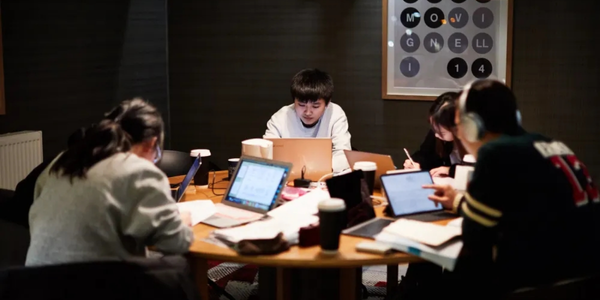In a world where remote learning is more common than ever, mastering the art of studying effectively at home has become essential. Whether you’re a high school student, a college learner, or a lifelong knowledge seeker, studying from home comes with unique challenges—distractions, lack of structure, and motivation dips being chief among them.
But here’s the good news: With the right mindset, strategies, and environment, home can become the perfect place for deep focus and academic success.
This comprehensive guide will walk you through proven methods to study smarter, not harder—right from the comfort of your home.
Why Studying at Home Can Be Challenging
Before diving into the solutions, it’s important to understand the common obstacles students face when studying at home:
-
Distractions: From Netflix to social media to noisy neighbors, your home is full of tempting interruptions.
-
Lack of Structure: No classroom bell or teacher’s watchful eye can make it hard to stick to a routine.
-
Isolation: Studying alone may reduce motivation and increase procrastination.
-
Comfort Overload: Your cozy bed and favorite couch may invite relaxation rather than focus.
Understanding these challenges is the first step toward overcoming them.
Set Yourself Up for Success
Create a Dedicated Study Space
Your environment affects your ability to focus. Set up a space that’s exclusively for studying.
-
Choose a quiet, well-lit corner of your home.
-
Use a desk and chair that supports good posture.
-
Keep only study-related materials in the area.
-
Personalize it with a plant or inspiring quote.
Eliminate Distractions
To concentrate better, you must proactively minimize distractions.
-
Turn off non-essential notifications on your phone or use Do Not Disturb mode.
-
Use apps like Forest, Cold Turkey, or Focus@Will to stay on track.
-
Let housemates or family members know your study hours.
Pro Tip: Use a white noise machine or calming music playlist to mask background noise.

Build an Effective Study Routine
Stick to a Consistent Schedule
Humans thrive on routine. A predictable study schedule trains your brain to enter “focus mode” more easily.
-
Choose blocks of time when you’re most alert (e.g., mornings or early afternoons).
-
Use calendar tools like Google Calendar to plan study sessions.
-
Include breaks and buffer time for transitions.
Use the Pomodoro Technique
The Pomodoro Technique is one of the most effective time management strategies:
-
Study for 25 minutes.
-
Take a 5-minute break.
-
Repeat 4 times.
-
After 4 cycles, take a longer break (15–30 minutes).
This helps maintain focus while avoiding burnout.
Master the Art of Active Learning
Engage, Don’t Just Read
Passive reading leads to quick forgetfulness. Instead, embrace active learning techniques:
-
Summarize what you’ve read in your own words.
-
Teach the concept to someone else (even if it’s your pet!).
-
Create flashcards with apps like Anki or Quizlet.
-
Solve practice problems or take mock tests.
Use Spaced Repetition
Spaced repetition leverages the science of memory:
-
Review material over increasing intervals (e.g., after 1 day, 3 days, 1 week).
-
Helps move information from short-term to long-term memory.
Optimize Your Environment and Tools
Lighting and Ergonomics Matter
Poor lighting or posture can make you tired faster.
-
Use a desk lamp with warm, indirect light.
-
Position your monitor at eye level.
-
Keep feet flat on the floor and wrists straight while typing.
Digital Tools for Smarter Studying
Use tech to your advantage. Here are some top productivity tools:
-
Notion or Evernote for organized note-taking.
-
Trello or Todoist for task management.
-
Grammarly for polishing essays and assignments.
-
Google Drive for cloud-based file storage.

Stay Motivated and Avoid Burnout
Set Clear, Achievable Goals
Studying without a goal is like driving without a destination.
-
Break large goals into smaller, measurable tasks.
-
Use SMART goals (Specific, Measurable, Achievable, Relevant, Time-bound).
Example:
Instead of “Study biology,” try “Complete Chapter 4 reading and quiz by 4 PM.”
Reward Yourself
Positive reinforcement builds habits.
-
After completing a task, reward yourself with a short walk, a snack, or 10 minutes of social media.
-
Keep a visible checklist—it feels great to tick things off!
Stay Connected
Even if you’re physically alone, don’t isolate academically:
-
Join online study groups or forums.
-
Use Zoom or Discord for group study sessions.
-
Ask questions on platforms like Reddit, Quora, or Stack Exchange.
Develop Long-Term Study Habits
Reflect and Improve
At the end of each week, ask yourself:
-
What worked well?
-
What distracted me?
-
What can I improve next week?
Keeping a study journal can help you track your progress and adjust your strategies.
Prioritize Mental and Physical Health
You can’t study well if you’re not well.
-
Exercise regularly—even a 15-minute walk helps.
-
Sleep 7–9 hours per night to consolidate memory.
-
Eat brain-boosting foods: nuts, berries, leafy greens, and fish.

Common Mistakes to Avoid
-
Studying in bed: Your brain associates bed with sleep, not focus.
-
Multitasking: Doing multiple things at once reduces productivity by up to 40%.
-
Studying without breaks: Leads to mental fatigue and decreased retention.
-
Cramming: Information gained during cramming rarely stays long-term.
Real-Life Success Story
Emily, a university student in Toronto, struggled with online learning during the pandemic. Her grades dipped, and she felt overwhelmed.
She began implementing small changes:
-
Set up a simple desk in her bedroom.
-
Started using the Pomodoro method.
-
Joined a virtual study group via Discord.
-
Took daily walks to refresh her mind.
Within one semester, Emily saw a noticeable improvement—not just in grades, but in confidence.
“Studying at home felt impossible at first. Now, I’ve built a system that works for me. I’m more focused than I ever was in the classroom.”
Final Thoughts: You Can Learn Effectively From Home
Learning how to study effectively at home is all about intention and consistency. You don’t need the perfect setup or expensive tools—just the right strategies, a bit of discipline, and self-compassion.
Remember: Progress, not perfection.

Call to Action
Now that you’ve learned the keys to studying effectively at home, it’s time to put them into practice!
👉 What’s your biggest challenge when studying at home? Drop a comment below—we’d love to hear your thoughts and tips.
And don’t forget to explore our other guides on productivity, learning hacks, and mental wellness.


